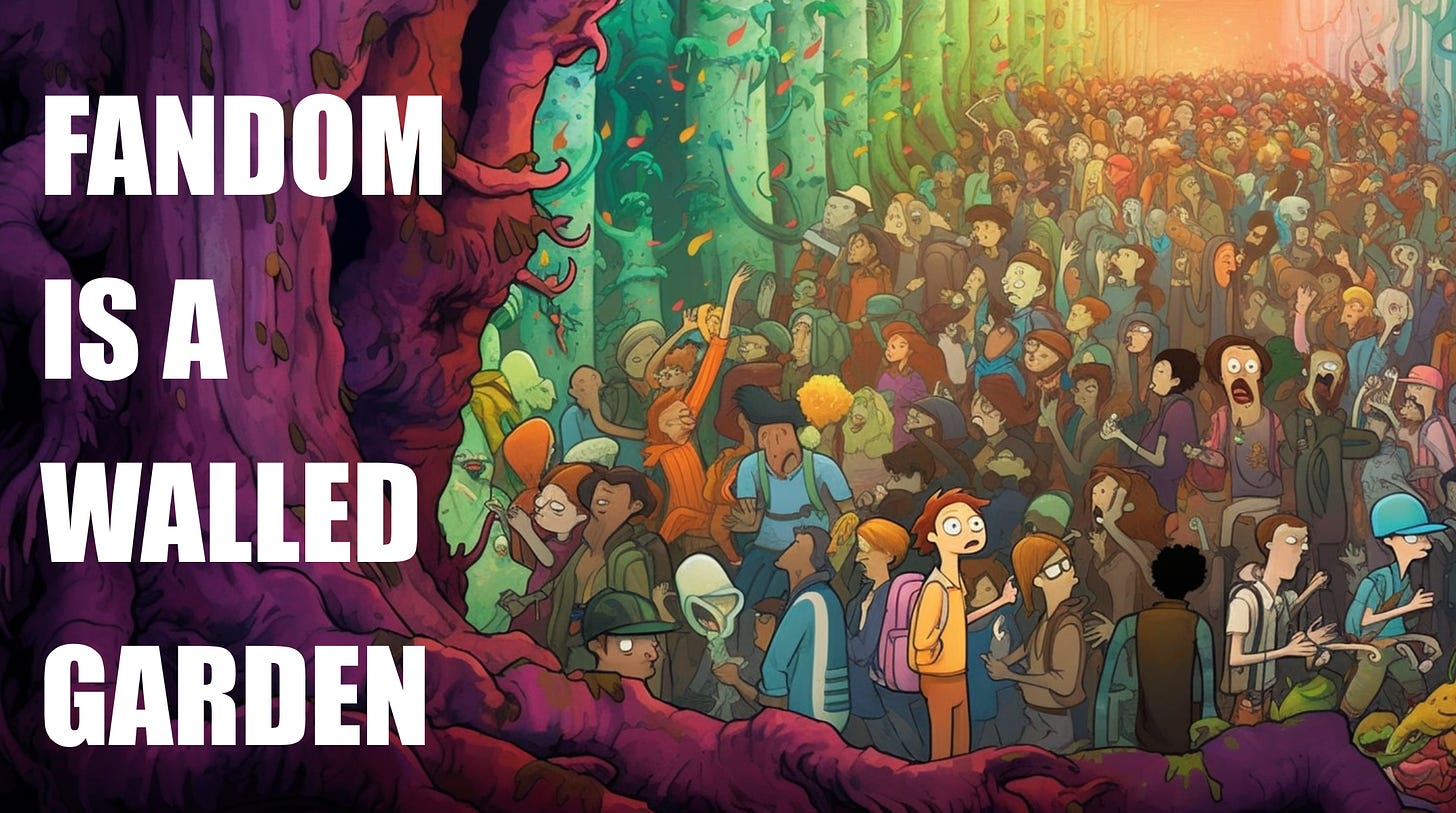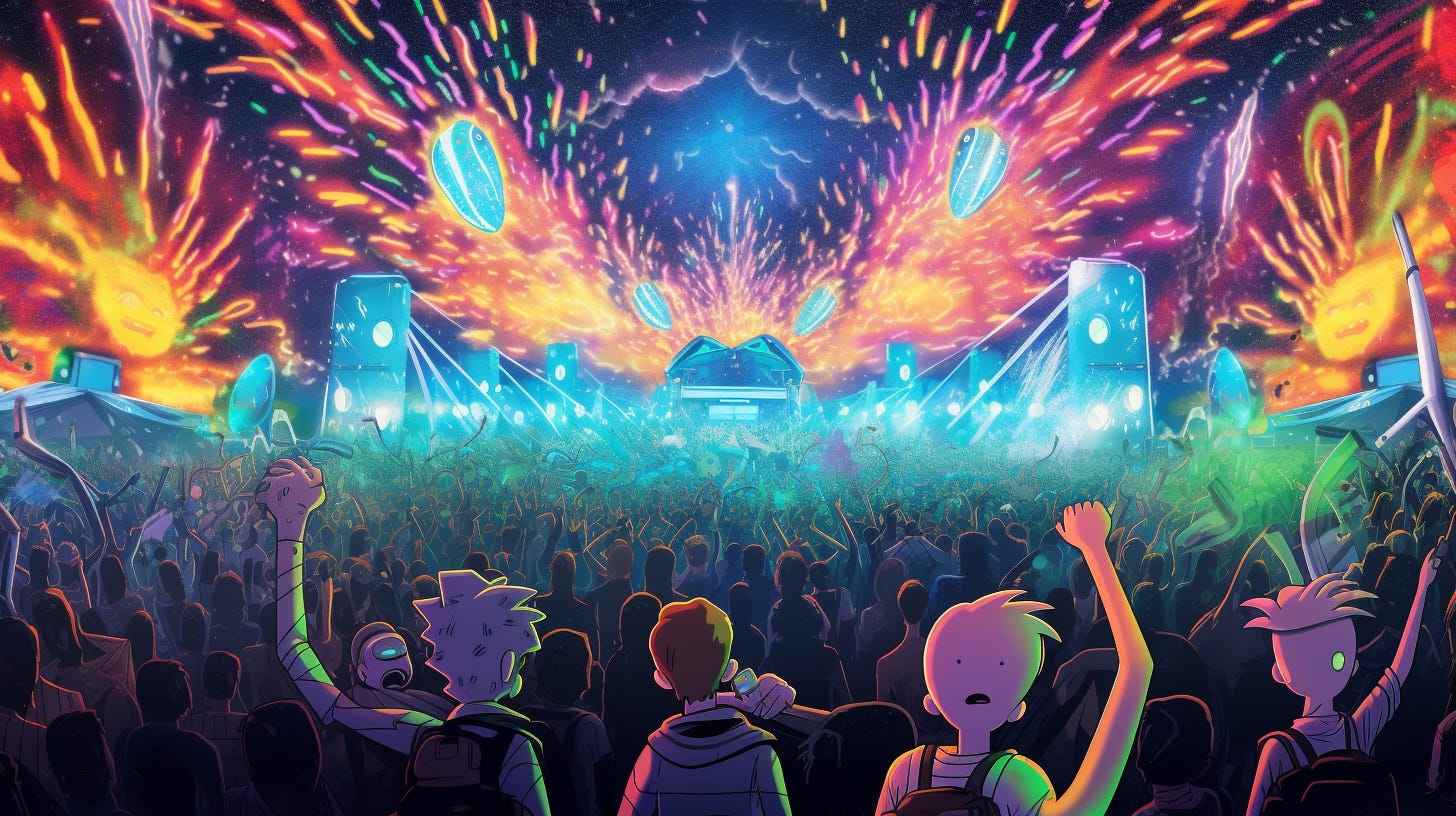This week's big streaming news is the $100M deal Kick struck with a large Twitch creator to head over to their platform for two years.
And it's absurd. A deal bigger than most of the biggest professional athlete offers, and one (yes, even with Kick's ultimate goal of shilling online gambling) that is unlikely to net any return based on my wild guesses. And history.
And this is why: digital fandom is a walled garden.
Kick's deal is particularly crazy when we've already seen this fail spectacularly when Mixer (then owned by Microsoft) tried to woo Ninja's hardcore Twitch following to the platform for $50M. Here's how that went:
Mixer's viewership peaked before Ninja (and later Shroud and others) joined in 2019
Ninja's viewership dropped 33%
Mixer shut down less than a year later in 2020
I've written about the challenges that gamers have in context switching, and it's something that extends to fandoms beyond gaming and impacts platforms, creators, and fans. But the Ninja/Mixer example illustrates a major challenge for the creator economy and audiences alike: your fans are locked in.
Twitch, like many platforms, has created a system of status and cred that is super enticing but isn't portable, and fans are simply more incentivized to preserve their status, intact in its ecosystem where their friends and peers are, than they are to follow a single creator and start over again.
This isn't a problem in the physical world. If I'm a complete Phish head, I can throw on that tie dye shirt anytime and take it anywhere. If it's a vintage tee from their early underground days, I'll carry that status as an OG fan with me. That doesn't happen in digital networks. As a user or fan, if I wrack up Reddit karma, Twitch VIP chat badges, and a bunch of Instagram stars, those stay where they are. If my favorite creator moves elsewhere, I don't want to move with them and lose all of that.
Fans want to posture not only in front of the creators they love, but have that status emblazoned as permanent street cred that can be seen by others long after the creator gives them a shoutout for that $1,000 Bits tip.
This posturing is incredibly powerful for creators, but it's trash when it's time to move. Which they need to do often. Creators—at the whims of changing rules and revenue splits—need choices to help them in their journey of discoverability, monetization, and even tech advances that will let them showcase their art or content in new ways.
This is where web3 comes in. Savvy platforms and creators are thinking about the future of fandom and loyalty in the context of interoperability and permanence. Let's take, for example, a view of the current world of a musician and her audience:
Across Instagram, YouTube, Twitch, Patreon, Ticketmaster, Soundcloud, Twitter and more, she's creating different forms of content and fans are spending money on different forms of status and access to her.
Her fandoms are often discrete: YouTube fans don't convert to IG followers and vice versa because those badges don't transfer.
When it comes time to buy tickets for a show, she may want to give early access to VIP uber fans, and she'll need to reconcile that status across multiple systems and platforms. Where the groupies at?
She understandably misses a few OGs, who rant and rave and need time intensive and expensive TLC to bring them back.
Her Etsy storefront doesn't interact with anything else, so giving a 5% discount to show attendees for merch is manual, and more money is left on the table.
It's a system that is unrewarding for fans, a massive hassle for creators that shortchanges artists, and helps platforms merely retain—not easily gain—users.
With the blockchain:
Fans can wrack up, transfer, and show off status on any platform.
Tracking OGs through SBTs or other means allows for permanence of status.
The composite view of a fan is taken into account for exclusivity and offers for content or tickets; i.e. She can understand just how uber an uber fan is across all places using a common language.
Tickets are on-chain items that can be sold anywhere.
Merch connects directly to other ecosystems, so, e.g. event attendees can be rewarded with unique benefits for showing up.
If all the platforms go to zero and shut down, she still has direct access to all of her fans.
With a single unified backbone, our musician can tie together all of her worlds, making it easier to move fans around, interact with them intimately and outside the confines of a single system, and reward them and be rewarded for it. Digital, IRL, you name it.
Parts of this are already starting: Ticketmaster, Shopify, and link in bio platforms like Koji are recognizing the benefits of on-chain tools for token-gated commerce and experiences.
But nearly all of them are missing the plot: fans are the ones who keep the lights on. It's vital for platforms to build with a fanfirst mentality, thinking of what will delight them, what entices them to reward creators, and what they hope to get in return. With fan happiness, creators will follow.
These ecosystems also open up the doors for brands who are trying to get in front of engaged, passionate audiences, allowing them to leverage the loyalty that others have built, and of course the potential to cut in creators for another part of the advertising pie.
We're barely in the first inning of this, and there have already been some misguided first attempts (like social token platforms). But the power of fandoms that will be unleashed when they're portable and permanent will create a boon across the ecosystem and a better experience for audiences and creators.





